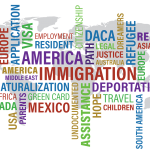
When’s a Best Time to Invest; Owner/Operator LMIA?
Many of us living in Canada are wondering what’s happening in our economy due to the pandemic, novel coronavirus (a.k.a. COVID-19). Several changes have been made in immigration regulations as well, and this change has affected numerous people who have been planning to immigrate to Canada.
In this blog post, we’ll discuss specifically about individuals who have been preparing for immigration to Canada by investing in Canadian businesses through Owner-Operator LMIA program. Moreover, we’ll talk further about what’s currently happening in the Canadian economy, and what we are expecting may occur in the near future.
We hope this article provides you with useful insights and information that helps you to make a best decision on when to invest in Canadian businesses if you are especially contemplating about Owner-Operator LMIA program for your immigration pathway.
WHAT IS OWNER-OPERATOR LMIA?
Owner-Operator LMIA is a type of LMIA (Labour Market Impact Assessment) application that allows a foreign worker to immigrate to Canada by investing in an eligible Canadian business. There is no restriction on how many years the business has been operating in Canada. Nevertheless, Service Canada highly prefers companies that have a sound foundation in company history, organization, and financial background.
This type of LMIA requires a foreign worker to be an actual owner and an operator of the company. Therefore, the worker is required to invest more than 50% of the business and be a controlling shareholder of the company.
Owner-Operator LMIA is a perfect option for individuals who are looking to immigrate to Canada through investments. The main benefits that they can enjoy is establishing a career in Canada by running their own business, so it eliminates a need for job search. Moreover, they are eligible to apply for both work permit and permanent residence (depending on their personal situation). Therefore, they can catch two birds (career & immigration) with one stone (owner-operator LMIA).
IMPACT OF COVID-19: PRECESSION & LAG IN CANADA ECONOMY
Canadian economy has been impacted significantly due to COVID-19.
Innumerable people have lost jobs, government of Canada has spent phenomenal amount of money to support Canadians, countless number of businesses and individuals have defaulted or filed bankruptcy, and banks have lowered interest rates to stimulate the economy.
All of these events have taken place in just a few months since the start of the major impact of the pandemic (March 2020), and many of us are expecting more to come in the near future. These abrupt and fast changes have made people to be anxious about the future as we cannot expect what’s going to become of our economy. We hope that this article help you feel in more control by listing out the current economic situations, and what may happen further in the future.
There is a concept called “precession” and “lag” in economy.
Precession basically means the slow movement of the axis of a spinning body around another axis due to a torque (such as gravitational influence) acting to change the direction of the first axis. It is seen in the circle slowly traced out by the pole of a spinning gyroscope (reference: Google Dictionary). Precession in economy implies a situation where there are multiple events happening from a single or various reference point of event or activity.
Lag indicates a period of time between one event or phenomenon and another (reference: Google Dictionary). Lagging in economic term implies that precession events does not happen all at the same time, but there is a lag between each event.
We would like to discuss about a few major precession events with a lag in mind. Of course, we do not know whether the events that we outline will happen or not, but we’d like to suggest these events will occur in this order: COVID-19 (reference point & start of the major impacts in the economy), financial market instability, unemployment rate increase, government supports (CERB, CEBA, CECRA, CEWS, etc.), defaults & debt delinquencies, bank purchases, investment timing and inflation.
COVID-19
To start with, COVID-19 has hit Canada in mid-March 2020, and since then major lockdowns occurred across Canada. The borders between Canada and US have been closed, and travel bans to international countries have been restricted. Most of businesses have been ordered to close to limit the spread of the virus. Due to this, countless number of businesses have suffered significantly financially.
Financial Market Instability
When the businesses have been forced to close, and as travel have been banned, import and export of goods have been disrupted. Not only that, the financial market, especially in stocks, mutual funds, government bonds, global currencies (US dollar, Canadian dollar, Chinese Yuan, Japanese Yen, Swiss Franc, Euro, GBP, etc.), and commodities (gold, silver, copper, oil, gas, etc.) have reacted tremendously. Stock market have dropped significantly, US dollar soared, gold and silver prices have gone up and oil prices dropped due to fall of demand. Currently, since March 2020, stock market has recovered a lot, US dollar strength fell again from the high point, and gold and silver prices are still higher than the initial point in March, and oil price is still low.
Unemployment Rate Increase
Innumerable number of people have been laid off due to COVID-19 as businesses have been forced to shut down. In Canada, the unemployment rate soared to 13.7% in May 2020. Then, the unemployment rate has declined to 10.2% in August 2020, which showed some recovery. This number translates to approximately 2 million of unemployed Canadians that are still searching for jobs.
Reference: https://www150.statcan.gc.ca/n1/daily-quotidien/200904/dq200904a-eng.htm.
Government Supports
Government of Canada has introduced several financial support programs to Canadians as a measure to help people fight against the pandemic. These programs include but not limited to, Canada Emergency Response Benefit (CERB), Canada Emergency Business Account (CEBA), Canada Emergency Commercial Rent Assistance (CECRA), Canada Emergency Wage Subsidy (CEWS), Regional Relief and Recovery Fund (RRRF), and other provincial grants and funding. Unfortunately, many of these government funding is expected to end soon. However, we know Government of Canada is trying its best to help Canadians to survive from the pandemic, so there may be an announcement of new support programs to replace the ones that have ended. For instance, Canada Response Benefit (CRB) has been introduced on September when CERB has ended.
Defaults & Debt Delinquencies
Overall, the business and real estate/mortgage default rate have not increased significantly. Moreover, Canadian’s debt delinquencies have not increased very much compared to what many people have expected. In fact, based on the data collected and analyzed by Trans Union, “consumer non-mortgage delinquency rates have declined by 10 bps (year over year) to 1.7%, which was driven by the reduction credit cards and auto loans.” Trans Union also suggests that “delinquency rates have been mitigated by lenders through the provision of financial accommodation tools like deferrals where approximately 2.6 million Canadians (9.2% of credit consumers) have at least one active deferral.”
Nevertheless, there are numerous analysts that are expecting major defaults to continue in the near future as there are many businesses that have already filed bankruptcy. For example, NPC International, the operator of 1200 Pizza Hut 400 Wendy’s restaurants have filed for bankruptcy. Chuck E. Cheese and GNC Holdings Inc. also filed for bankruptcy in June 2020.
We have to see what will actually happen in a longer term, especially late of 2020 to the end of 2021, as defaults and debt delinquencies are closely related to how much and how long the government funding will remain to help the Canadians in need.
Reference 1: https://www.transunion.ca/lp/IIR.
Reference 2: https://www.cnn.com/2020/07/01/business/npc-international-pizza-hut-bankruptcy/index.html.
Reference 3: https://www.businessinsider.com/the-rise-and-fall-of-chuck-e-cheese-bankruptcy-2020-8.
Reference 4: https://canoe.com/business/money-news/gnc-files-for-bankruptcy-may-close-1200-stores-and-sell-itself.
Bank Purchases
We are expecting the major banks in Canada to purchase the properties that have filed for bankruptcies. When residential and commercial property owners file for defaults, then the banks that have lent the mortgages and debts can purchase the assets. These properties are called, bank’s REOs (real estate owned).
Investment Timing
Many savvy investors like Robert Kiyosaki and Ken McElroy suggest that there’s an optimal time to invest in assets like businesses and real estates. It’s when there have been defaults going on and banks have purchased the properties that have been delinquent with the debt payments. When these precession events occur, then this may be a good timing to invest to reap the biggest benefits. This can be or cannot be a best time to invest, however, we believe it’s a wise choice to think about when you should be investing before taking an impulsive action.
If you are looking for an owner-operator LMIA by investing in a Canadian business, then you should look into this optimal timing to decide when you can invest. You may be able to find valuable businesses to invest with a much affordable price. You can help Canadians to maintain their jobs by purchasing the business instead of letting the business go default. You can also get your immigration process done through this program, so we believe this can be a win-win situation for everyone that’s involved.
Inflation
Lastly, we expect there to be an increase in inflation rate due to abnormal amounts of government spending. We don’t expect the inflation rate to skyrocket so fast in a short period of time, however, we expect the inflation rate to be higher in a longer term. Usually, the best benefactor of the inflation is a government and a borrower as they have a fixed debt amount, but they are paying less than what they borrowed over the long term due to the fall of currency’s value (purchasing power). We think it is wise to invest in good assets that you are comfortable with to ensure your cash is not just losing value without you knowing.
Reference 1: https://www.investopedia.com/ask/answers/111414/does-inflation-favor-lenders-or-borrowers.asp.
Reference 2: https://forbeswealthblog.ca/2018/06/are-the-posted-inflation-rates-a-lie/.
IMMIGRATION REGULATION FORECASTS
There have been several changes in immigration regulations, which is actually discussed in another blog post, “Immigration Regulation Changes through COVID-19”.
Based on the business investment, Canadian economy and immigration regulation outlook, we are expecting owner-operator LMIA program to be preferred by the Government of Canada for any eligible candidates to proceed. The main reason being is that as numerous Canadian businesses are suffering financially, and unemployment rate has soared, the government wants to see more investment from overseas to offset the negative economic impacts.
For those Canadian business owners that are looking to exit from their businesses can exit by selling their businesses instead of defaulting, which hits their credit scores negatively. For employees that have been working at the business can maintain their jobs, or even hire more local qualified candidates. For foreign investors that are looking to immigrate to Canada, they can purchase valuable businesses at a much affordable price and also meeting their immigration needs.
CONCLUSION
We believe considering an owner-operator LMIA program option at this timing can be a huge opportunity for eligible people to invest and immigrate at ideal and optimal time. Moreover, this alternative can create value for every stakeholder that is involved in the process as it can create a win-win situation where everyone benefits.
If you’d like to consult about your specific situation further or if you’d like to assess if you are eligible for an owner-operator LMIA program, then please contact us or submit a free assessment in our website.




